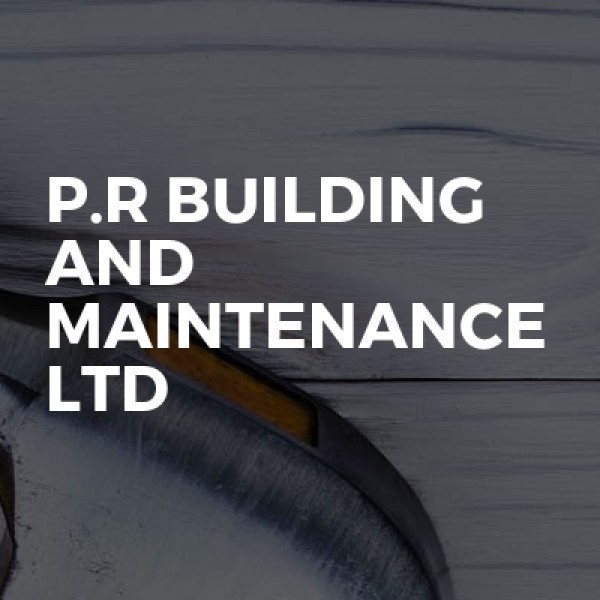Garage Conversions in Billinge
Welcome to JMW Building Services NW Ltd, your go-to experts for all building needs in Bolton and across Greater Manchester. As a leading... read more »
Welcome to TKO Kitchens & Construction LTD, your go-to experts for all things construction in Peel Green and Gr... read more »
Welcome to MIPA Solutions Ltd, your premier choice for building and refurbishment services in Sankey Bridges and throughout Che... read more »
Welcome to Paul Rossiter Construction Ltd, your trusted partner for all building needs in Liverpool and across Mersey... read more »
Welcome to Omnis Developments Ltd, your go-to experts for all building and renovation needs in Tower Hill and across Merseyside. As a lea... read more »
Renown Building Maintenance Ltd is a premier construction company based in the heart of Sankey Bridges,... read more »
Welcome to Brandon Green Homes T/a Renovaserve Ltd, your trusted partner for all your buildin... read more »
National Plumbing And Heating is a renowned Bruche-based company, proudly serving the vibrant community of Cheshire. Spe... read more »
AJBS: Your Trusted Tradespeople in Wigan and Greater Manchester
Welcome to AJBS, your go-to experts for all thin... read more »
Welcome to Bespoke Designs, your go-to experts for transforming spaces in Calderstones and across Merseysi... read more »
Platinum Builders & Developers Ltd, nestled in the bustling heart of Sandhills, is your premier choice for all construct... read more »
Welcome to Olliebrad Building Services, your go-to experts for all building needs in Hindley Green and the Greater Manchester area. Speci... read more »
Lee Leatherbarrow Building and Roofing is a premier choice for property maintenance in Broad Oak, proudly serving the Me... read more »
P&M Joinery And Building Services, nestled in the vibrant community of Edge Hill, is your premier choic... read more »
Welcome to Elevate Construction Group Ltd, your trusted partner for all your building needs in Leyland and throu... read more »
Welcome to LS Construction (North West) Limited, your premier choice for expert building services in Hulme and throughout Cheshire. As sp... read more »
P.R Building And Maintenance Ltd is a reputable company based in the heart of Wigan, proudly serving the Greater Manches... read more »
Paul Loughran Builders: Leading Builders in Ford, Merseyside
Welcome to Paul Loughran Builders, your premier cho... read more »
ED Construction NW Limited is a prem... read more »
BBP Property Services Ltd is a renow... read more »
Search Garage Conversions in places nearby
Understanding Garage Conversions in Billinge
Garage conversions in Billinge have become a popular choice for homeowners looking to maximise their living space without the hassle of moving. With the rise in property prices and the desire for more functional spaces, converting a garage offers a cost-effective solution. This article explores the ins and outs of garage conversions, providing a comprehensive guide to transforming your underutilised space into a valuable asset.
The Benefits of Garage Conversions
Garage conversions offer numerous benefits, making them an attractive option for many homeowners. Firstly, they increase the usable space in your home, allowing for additional rooms such as a home office, gym, or guest bedroom. Secondly, they can significantly boost the value of your property, offering a high return on investment. Lastly, garage conversions are generally quicker and less disruptive than building an extension, making them a convenient choice for families.
Cost-Effectiveness
One of the primary advantages of garage conversions is their cost-effectiveness. Compared to building a new extension, converting an existing garage is often more affordable. This is because the structure is already in place, reducing the need for extensive construction work. Additionally, garage conversions typically require fewer materials and labour, further lowering costs.
Increased Property Value
Converting a garage can significantly increase the value of your home. By adding functional living space, you make your property more appealing to potential buyers. This can lead to a higher selling price if you decide to move in the future. In some cases, a well-executed garage conversion can add up to 20% to the value of your home.
Enhanced Living Space
Garage conversions provide an opportunity to enhance your living space without altering the footprint of your home. Whether you need an extra bedroom, a playroom for the kids, or a quiet office space, a garage conversion can meet your needs. This flexibility allows you to tailor the space to suit your lifestyle, making your home more comfortable and functional.
Planning and Regulations
Before embarking on a garage conversion in Billinge, it's essential to understand the planning and regulatory requirements. While some conversions may not require planning permission, others might, depending on the scope of the project and local regulations.
Planning Permission
In many cases, garage conversions fall under permitted development rights, meaning you won't need planning permission. However, if your property is in a conservation area or if the conversion involves significant structural changes, you may need to apply for permission. It's always best to check with your local planning authority to ensure compliance.
Building Regulations
Regardless of whether planning permission is required, all garage conversions must comply with building regulations. These regulations ensure that the conversion is safe, energy-efficient, and structurally sound. Key areas covered by building regulations include insulation, ventilation, fire safety, and structural integrity.
Design Considerations
Designing a garage conversion requires careful planning to ensure the space meets your needs and complements your home. Considerations include layout, lighting, and interior design elements.
Layout and Functionality
The layout of your garage conversion should reflect its intended use. For example, a home office might require built-in storage and a desk area, while a guest bedroom would need space for a bed and wardrobe. Think about how you will use the space and plan the layout accordingly to maximise functionality.
Lighting and Ventilation
Garages often lack natural light and ventilation, so it's important to address these issues during the conversion process. Consider installing windows or skylights to bring in natural light and improve air circulation. Additionally, incorporate artificial lighting solutions to ensure the space is well-lit and inviting.
Interior Design
The interior design of your garage conversion should harmonise with the rest of your home. Choose colours, materials, and furnishings that complement your existing decor. This will create a cohesive look and feel, making the new space an integral part of your home.
Choosing the Right Professionals
Hiring the right professionals is crucial to the success of your garage conversion. From architects to builders, each plays a vital role in bringing your vision to life.
Architects and Designers
An architect or designer can help you plan the layout and design of your garage conversion. They will ensure that the space is functional, aesthetically pleasing, and compliant with regulations. Working with a professional can also help you avoid common pitfalls and make the most of your budget.
Builders and Contractors
Choosing experienced builders and contractors is essential for a successful conversion. Look for professionals with a proven track record in garage conversions and check references to ensure quality workmanship. A reliable contractor will manage the construction process, ensuring that the project is completed on time and within budget.
Budgeting for Your Garage Conversion
Setting a realistic budget is a critical step in the garage conversion process. Consider all potential costs, including design, materials, labour, and any unforeseen expenses.
Cost Breakdown
Understanding the cost breakdown of a garage conversion can help you plan your budget effectively. Key expenses include design fees, construction costs, materials, and any necessary permits or inspections. It's also wise to set aside a contingency fund for unexpected costs that may arise during the project.
Financing Options
If you're concerned about financing your garage conversion, there are several options available. These include personal loans, home equity loans, or remortgaging your property. Each option has its pros and cons, so it's important to research and choose the one that best suits your financial situation.
Common Challenges and Solutions
While garage conversions offer many benefits, they can also present challenges. Being aware of these potential issues can help you plan effectively and avoid common pitfalls.
Structural Challenges
Garages are not always built to the same standards as the rest of your home, which can present structural challenges during a conversion. Issues such as dampness, inadequate foundations, or insufficient insulation may need to be addressed. Working with experienced professionals can help you identify and resolve these issues early in the process.
Space Limitations
Garages are often smaller than other rooms in the home, which can limit your design options. To make the most of the available space, consider using multifunctional furniture or built-in storage solutions. Clever design can help you maximise the functionality of a smaller space.
Case Studies: Successful Garage Conversions in Billinge
Exploring real-life examples of successful garage conversions can provide inspiration and insight into the process. Here are a few case studies from Billinge that showcase the potential of garage conversions.
Home Office Transformation
One Billinge homeowner transformed their garage into a stylish and functional home office. By incorporating built-in shelving, a large desk, and ample lighting, they created a productive workspace that blends seamlessly with the rest of the home.
Guest Bedroom Addition
Another family in Billinge converted their garage into a cosy guest bedroom. By adding insulation, new flooring, and tasteful decor, they created a welcoming space for visitors. The addition of an en-suite bathroom further enhanced the functionality of the conversion.
Children's Playroom
A creative garage conversion in Billinge resulted in a vibrant children's playroom. Bright colours, playful furniture, and ample storage made the space perfect for playtime. The conversion provided a dedicated area for the children, freeing up space in the main living areas.
Frequently Asked Questions
- Do I need planning permission for a garage conversion in Billinge? In most cases, garage conversions fall under permitted development rights, but it's best to check with your local planning authority.
- How much does a garage conversion cost? Costs can vary depending on the scope of the project, but garage conversions are generally more affordable than building a new extension.
- How long does a garage conversion take? The duration of a garage conversion can vary, but most projects are completed within a few weeks to a couple of months.
- Can I convert a detached garage? Yes, detached garages can also be converted, though they may require additional considerations such as plumbing and electrical connections.
- Will a garage conversion add value to my home? Yes, a well-executed garage conversion can significantly increase the value of your property.
- What are the common uses for a converted garage? Common uses include home offices, guest bedrooms, playrooms, gyms, and additional living spaces.
Garage conversions in Billinge offer a fantastic opportunity to enhance your home's functionality and value. By understanding the benefits, planning requirements, and design considerations, you can successfully transform your garage into a space that meets your needs and complements your lifestyle. With the right professionals and a clear vision, your garage conversion can become a valuable addition to your home.
Send a message























